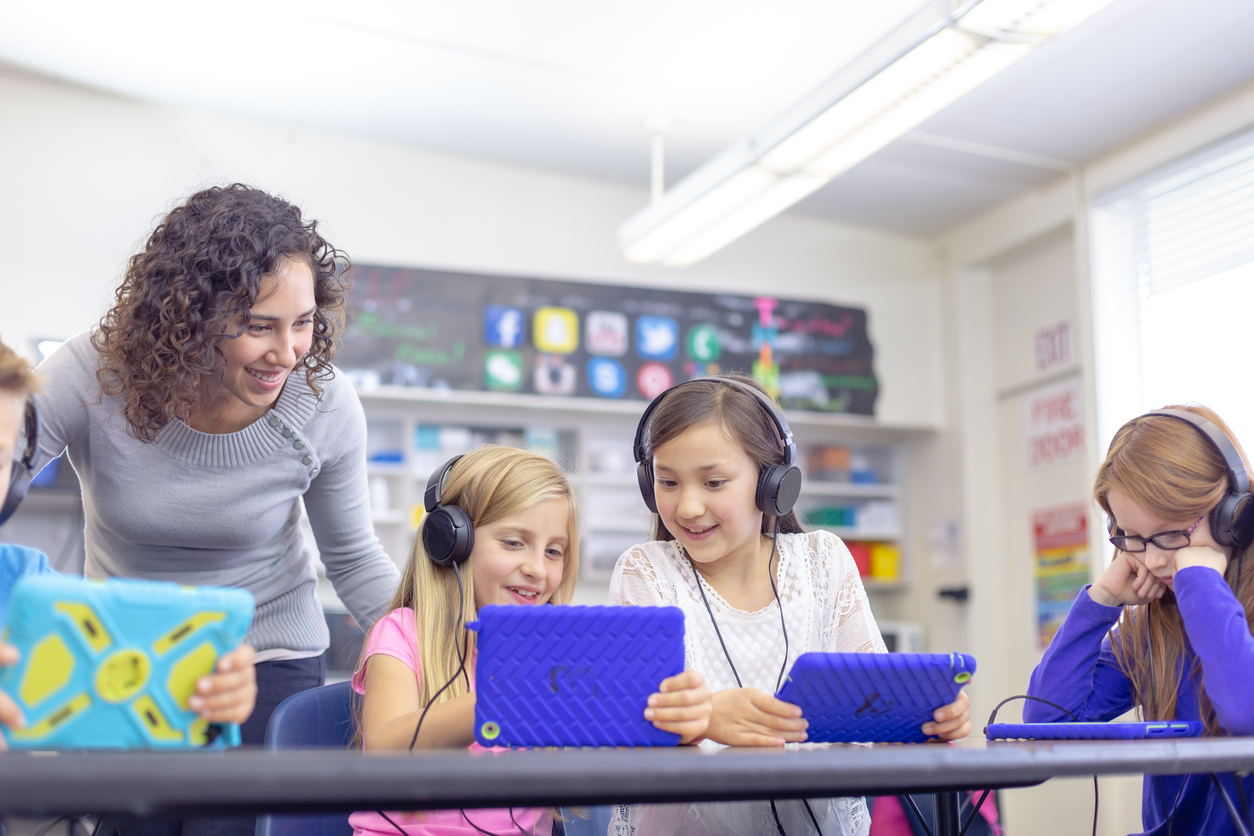Boost Your Child’s Confidence with Primary Science Tuition Singapore
Boost Your Child’s Confidence with Primary Science Tuition Singapore
Blog Article
A Comprehensive Overview to the Different Discovering Techniques in Main Scientific Research Direction
The expedition of varied understanding techniques in main scientific research guideline offers a possibility for teachers to enhance student involvement and comprehension significantly. By taking a look at hands-on discovering methods, inquiry-based approaches, and collective strategies, we can recognize effective techniques that cater to various finding out designs.

Hands-On Discovering Techniques
Hands-on knowing techniques play a pivotal role in primary scientific research instruction, involving trainees in energetic exploration and testing. These approaches allow learners to engage directly with sensations and products, cultivating a deeper understanding of scientific principles. By making use of manipulatives, models, and real-life experiments, instructors develop a setting where students can observe, assume, and evaluate their ideas.
Such methods not only improve understanding but additionally cultivate crucial thinking and analytical skills. When trainees get involved in tasks like constructing straightforward machines, growing seeds, or conducting chemical reactions, they are encouraged to ask questions and look for responses with their own observations. This experiential method assists to debunk intricate clinical concepts, making them extra relatable and easily accessible.
Moreover, hands-on learning promotes collaboration among peers, as trainees often work in groups to perform experiments or share findings. This teamwork not only enriches their knowing experience yet additionally creates vital social abilities. Ultimately, integrating hands-on techniques in primary science instruction cultivates a lifelong love of discovering and curiosity regarding the natural world, laying a strong foundation for future academic pursuits in science and past.
Inquiry-Based Discovering
Inquiry-based discovering is an educational technique that encourages students to ask concerns, explore sensations, and create their own understanding of scientific ideas. This method changes the focus from typical teacher-led instruction to an extra student-centered experience, where students take the initiative in their instructional journey. By cultivating interest, inquiry-based understanding advertises deeper involvement with the product, permitting students to check out topics in a meaningful context.
In method, this technique commonly entails hands-on experiments, observations, and vital thinking tasks that line up very closely with the scientific approach. Pupils are encouraged to formulate theories, style investigations, and assess information, which grows crucial abilities such as analytic and logical reasoning. The role of the instructor in this structure is to facilitate expedition, directing pupils through the inquiry process while motivating independent thought and collaboration.
Moreover, inquiry-based knowing supports a sense of possession over the learning procedure, inspiring trainees to go after expertise actively. This approach not just boosts understanding of scientific concepts but also fosters a long-lasting love for understanding, equipping pupils with the skills necessary to browse an increasingly complicated globe.
Collaborative Knowing Approaches
Collective knowing methods equip pupils to engage in significant interactions with peers, fostering a common responsibility for their educational end results. In primary science direction, these methods encourage students to work with each other to check out scientific concepts, address issues, and perform experiments (primary science tuition Singapore). By participating in team activities, trainees can leverage varied viewpoints, permitting richer understanding and retention of clinical expertise
One secret element of collaborative discovering is the focus on interaction abilities. Students need to articulate their thoughts, listen actively to others, and negotiate ideas, all of which are important expertises in both real-world and scholastic contexts. This social communication not just improves their understanding of scientific concepts but likewise promotes team effort and conflict resolution skills.
In addition, collective learning often brings about increased motivation and involvement. They are extra most likely to take possession of their discovering trip when pupils see the worth of their payments within a team. Educators can facilitate this procedure by designing organized team tasks that straighten with curriculum goals while giving support on reliable collaboration strategies. In general, incorporating collaborative knowing methods in main scientific research direction cultivates a dynamic learning setting that prepares trainees for future academic and social challenges.
Modern Technology Integration in Science
The combination of modern technology in key science guideline boosts learning experiences by supplying cutting-edge tools and resources that sustain different training methodologies, consisting of collaborative learning - primary science tuition Singapore. Making use of digital platforms, simulations, and interactive applications enables trainees to engage deeply with scientific principles, assisting in a much more hands-on technique to knowing
Online laboratories, for example, enable students to conduct experiments securely and successfully, promoting inquiry-based discovering. These tools can imitate real-world clinical circumstances, allowing students to visualize intricate procedures that would be difficult to replicate in a traditional class setting. Modern technology promotes interaction and cooperation among trainees, as they can share searchings for and work together on jobs via online systems.
In addition, multimedia presentations and educational videos can enhance lessons by dealing with diverse understanding styles, making abstract ideas more easily accessible. Data evaluation devices additionally equip pupils to accumulate and analyze clinical information, enhancing important thinking skills. Overall, the critical incorporation of innovation in primary scientific research direction not only enhances engagement yet additionally prepares trainees for a technically sophisticated culture, outfitting them with important skills for future clinical endeavors.
Differentiated Instruction Approaches
Distinguished instruction methods are vital for dealing with the diverse needs of students in main scientific research education and learning. These methods make it possible for educators to tailor their training techniques to accommodate varying capacities, interests, and discovering designs within the class. By employing differentiated instruction, educators can produce a comprehensive atmosphere that cultivates interaction and boosts understanding of scientific ideas.
One reliable strategy is to make use of adaptable organizing, which permits pupils to collaborate with peers at comparable ability degrees or with varying perspectives. This strategy motivates peer discovering and promotes crucial thinking. Additionally, using selections in jobs can encourage trainees, news permitting them to pick tasks that resonate with their passions while still fulfilling curricular objectives.
Additionally, integrating tiered projects is an additional valuable method. By creating tasks with varying levels of intricacy, educators can guarantee that all students are suitably challenged, no matter of their proficiency. Making use of formative assessments to determine comprehending more allows instructors to readjust their instructional methods dynamically, ensuring that each learner gets the support they require.
Inevitably, executing set apart direction approaches in main science education not just enhances student learning outcomes but additionally cultivates an interest for science, preparing trainees for future scholastic quests.

Verdict
In recap, efficient key scientific research guideline demands a multifaceted approach that includes hands-on discovering, inquiry-based approaches, and joint strategies. The integration of innovation and distinguished instruction better satisfies diverse understanding designs, cultivating an environment helpful to expedition and critical thinking. By implementing these approaches, educators can enhance trainee engagement and comprehension, eventually nurturing a long-lasting passion for science and query. Such detailed approaches are necessary for establishing educated and interested future researchers.
The expedition of varied understanding approaches in main science guideline presents a chance for learn the facts here now instructors to boost trainee interaction and comprehension considerably.Hands-on understanding techniques play an essential role in key scientific research direction, engaging students in active expedition and trial and error.Inquiry-based knowing is a training approach that urges students to ask questions, explore sensations, and create their own understanding of scientific ideas.Collective understanding methods empower trainees to engage in significant communications with peers, promoting a shared obligation for their educational end results. Generally, including joint understanding strategies in main science direction internet grows a vibrant learning environment that prepares trainees for future scholastic and social obstacles.
Report this page